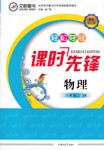题目内容
While protests have removed the president from his position, the country has been suffering a sharp _____ in its economy.
A. decline B. decoration C. tendency D. frequency
练习册系列答案
 文敬图书课时先锋系列答案
文敬图书课时先锋系列答案
相关题目
题目内容
While protests have removed the president from his position, the country has been suffering a sharp _____ in its economy.
A. decline B. decoration C. tendency D. frequency
 文敬图书课时先锋系列答案
文敬图书课时先锋系列答案